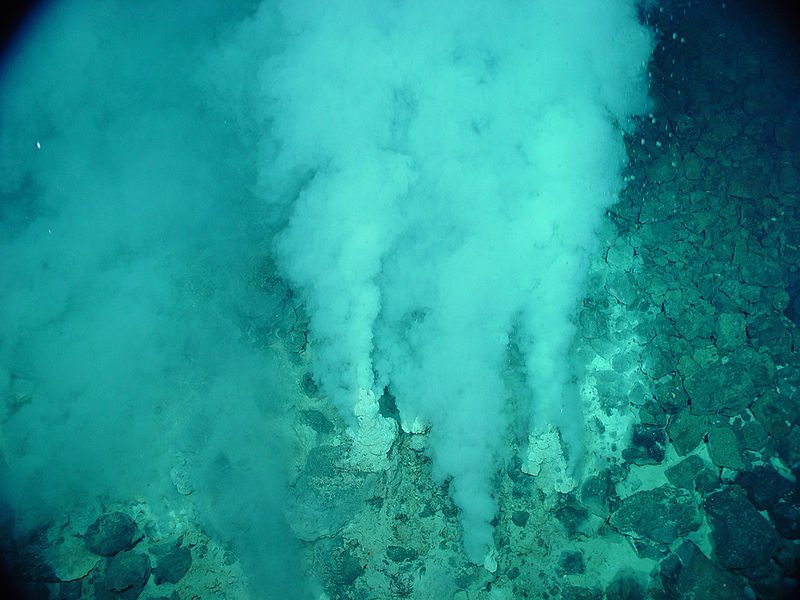
The tag line for this blog is “Think psychologically; Live Spiritually.” In the 6+ years I’ve been writing here, I’ve often shared dreams or traumatic early experiences that shaped my personality and way of life. I’ve done this to demonstrate the healing power of self-examination and self-discovery in the hope of helping others.
Since the presidential election I’ve had a few dreams, experiences, and conversations that heightened my awareness of an issue I’d like to address for the same reasons. I’m talking about the recent spate of angry outpourings from people who have been bottling up attitudes and feelings for years and have suddenly decided to “tell it like it is.” While the social media have always had its share of ‘trolls,’ the phenomenon has escalated since the election, and the venting is usually aired with hurtful language and intent.
A story on the radio this morning: A husband and wife were talking to a relative who was excited about coming for leftovers the day after Thanksgiving because the wife always served delicious BBQ turkey sandwiches. Frustrated, the husband said to his wife, “I’ve bottled up the truth for fifty years. I’ve always hated your BBQ sandwiches and now I can say whatever is on my mind without worrying about hurting your feelings. That’s the way the country is now since Trump was elected president! You just tell it like it is.”
 Something in me seems to be responding to this at an unconscious level. In a dream from yesterday morning, four different men said or did mean things to me. One man accused me of being a sneaky crook when I accidentally bumped into his table and bent to retrieve an object that had fallen off. A second thought I was being selfish when I didn’t want to go where he wanted me to go. A third passer-by witnessed a fourth man groping me, and accused me of being a ‘loose’ woman. In three of these cases I was wrongly accused and misjudged. In the fourth I was physically molested. Worst of all, I couldn’t defend myself because my throat was shut so painfully tight that I could barely speak.
Something in me seems to be responding to this at an unconscious level. In a dream from yesterday morning, four different men said or did mean things to me. One man accused me of being a sneaky crook when I accidentally bumped into his table and bent to retrieve an object that had fallen off. A second thought I was being selfish when I didn’t want to go where he wanted me to go. A third passer-by witnessed a fourth man groping me, and accused me of being a ‘loose’ woman. In three of these cases I was wrongly accused and misjudged. In the fourth I was physically molested. Worst of all, I couldn’t defend myself because my throat was shut so painfully tight that I could barely speak.
I recognized the husband’s response because I’ve experienced his need to vent about something I’ve repressed for too long. I recognize my dream characters as parts of myself because I can trace their self-critical attitudes back to youthful wounds that left me feeling guilty, as if I somehow deserved ill-treatment. Having no understanding of my feelings or words to defend myself, I held in the hurt. Meanwhile, in the shadows of my unconscious, my critical bullies were gaining power and building up pressure. And more times than I care to remember, I have let it out in ways that were hurtful to others.
Through trial, error and much self-reflection, I’ve learned there’s nothing inherently right or wrong about venting. We all hide certain uncomfortable truths, we all suffer for it, and most of us have felt relief from letting off some steam. But there is a better and a worse way to vent, and if you care about healing yourself and the world around you, you have a better chance of helping with the better way.
 Venting with a vengeful motive, self-righteous attitude, cruel words with the intent to wound, and the will to win at any cost is worse. A better way is to tell the truth about how you feel and why, to tell it honestly without anger, to tell it for the purpose of healing separations and misunderstandings, and to try to cause as little pain as possible. I know it’s not always possible, but the least we can do is try. And keep trying.
Venting with a vengeful motive, self-righteous attitude, cruel words with the intent to wound, and the will to win at any cost is worse. A better way is to tell the truth about how you feel and why, to tell it honestly without anger, to tell it for the purpose of healing separations and misunderstandings, and to try to cause as little pain as possible. I know it’s not always possible, but the least we can do is try. And keep trying.
So here’s what I’ve got:
Jeanie’s Self-Help Mini-Course on How to Tell it Like it Is!
I. Reflect on my early painful experiences.
-
What hurtful experiences, starting with early childhood, caused me to bottle up my honest attitudes, beliefs, and feelings? Describe.
II. Reflect on my emotional responses.
-
How did these experiences make me feel? Hurt? Sad? Afraid? Victimized? Paralyzed? Humiliated? Betrayed? Helpless? Hopeless? Resentful? Rebellious? Resigned? Angry? Sorry for myself? Jealous? Vengeful? Other emotions?
-
How do these feelings show up in my attitudes and behavior today? Record examples.
-
Why did I bottle up my feelings? Because it didn’t feel safe to express them? Because I learned that way of dealing with emotions from my family of origin? Because pretending to be calm and unemotional helped me avoid conflict? Because I didn’t know how to fight back? Because I assumed I must have deserved the wounds? Because I was too proud, embarrassed or afraid to face what happened or ask for help? Because I thought it would make me look weak and whiny and I wanted to look tough and stoic? Because my culture taught that ‘just getting over’ my feelings was the wiser, more mature thing to do? Because I was afraid of censure? Other reasons?
 III. Reflect on my reasons for ‘telling it like it is.’
III. Reflect on my reasons for ‘telling it like it is.’
-
What are my true motives? The desire to connect? To understand a different point of view? To help? To make peace? To heal my memories and wounds? To heal a relationship? To get revenge for being betrayed by someone or something I trusted? To right a wrong? To relieve internal pressure? To be right? To feel superior? Others?






8 Responses
Bottled up feelings and being passive definitely create havoc. Sadly, in my family expressing anger was not allowed, so my brother and I would explode rather than openly discuss our feelings. We are taught to be “nice” too. Or “children are seen and not heard.” There are a multitude of reasons for not being honest or direct. I know for me, it took the death of my mother and years of counseling prior to her death for me to be able to express myself. In today’s political arena we now think we can do anything we want… that we don’t have to be “nice” anymore. Hopefully the anger will dissipate. We can be honest and proactive without attacking people. Your post is a good reminder of alternative ways of dealing with “honesty.” I know, the feelings I had been stuffing needed to come out, so this is when I started writing.
I hope more people start journaling rather than attacking one another. Thanks for the thought-provoking post.
Hi Gwynn,
Thank you for sharing your early experience with emotions. Nobody openly discussed emotions in my house either. They were embarrassing. So was the truth. Every deep, important feeling was covered up, ignored, hidden, repressed. And we all assumed that was just the way it was. I don’t remember feeling anger until I was in college. Naturally, it started sneaking out eventually, and when it did I was ashamed, as if it made me a bad person!
The current political ‘anything goes’ virus hurts us all. And if it is already infecting adults, think what it’s doing to young, impressionable minds. Like you, I have found writing to be a safe container for venting. Especially writing about dreams, including the one above. You should see the last few pages of my dream journal. No you shouldn’t! 😉
Reblogged this on lampmagician.
Thank you. 🙂
Thanks Jeanie, great post. You’ve asked all the important questions which give us all an opportunity to reflect on them – and take constructive action. Hopefully, we can all look within and counter-balance the extreme negativity projected out onto the world.
Socrates (in Plato’s Phaedro):The unexamined life is not worth living. And, re: dreams: Talmud: An unexamined dream is like an unopened letter.
Thanks, Susan. Jung said we have five instincts: nurturance, activity, reflection, sex, and creativity. Among these it would appear that reflection is perhaps the least well-developed in today’s world. Happily, that’s not true of the people I meet here. And thank you for reminding us of these great quotes.
Thank you. I hope we can do better, Jeanie. As you know, Vic and I had the good fortune of being introduced to Jung in our 20s. While studying Jung, we spent three years doing “encounter groups,” Gestalt therapy, bioenergetics, and all sorts of experimental techniques in 1960s California. Jung was foundational for the practical experiments, but encounter groups where we exposed deepest feelings (often resentments, fears, or hurts) in a safe environment were the best training for trusting the truth and learning to express grievances without sinking the ship. I’m forever grateful. In a recent conversation with one of my sons, I said how important Jungian ideas were/are in our family dynamics. He agreed, but said he thought encounter groups which happened long before his time were more important in Vic’s and my parenting style. He remembered sitting on the couches across from each other for family discussions, letting the steam escape before the pressure cooker exploded and figuring out how to do better. Blessings for a peaceful Thanksgiving for you, Fred, and all your family.
You and Vic were so lucky to be in encounter groups. What a marvelous opportunity to practice communication and problem-solving skills. I remember hearing about them in the 70’s, but as a naive young woman who grew up in a home where emotions were repressed, I thought they sounded a little strange and potentially problematic. What if I did or said something stupid? What if someone got mad at me and said something mean? It was far easier to read about the new theories than to actually practice them! We always resist things that arouse our anxieties and fears. Had I been able to face mine in those days I could have saved myself years of inner turmoil. I suppose encounter groups were the predecessor to today’s therapy groups of all kinds—bereavement, addiction recovery, anger management, conflict resolution, etc. What a gift to psychological growth and family health.
We had a lovely, peaceful Thanksgiving day. I hope you did too.